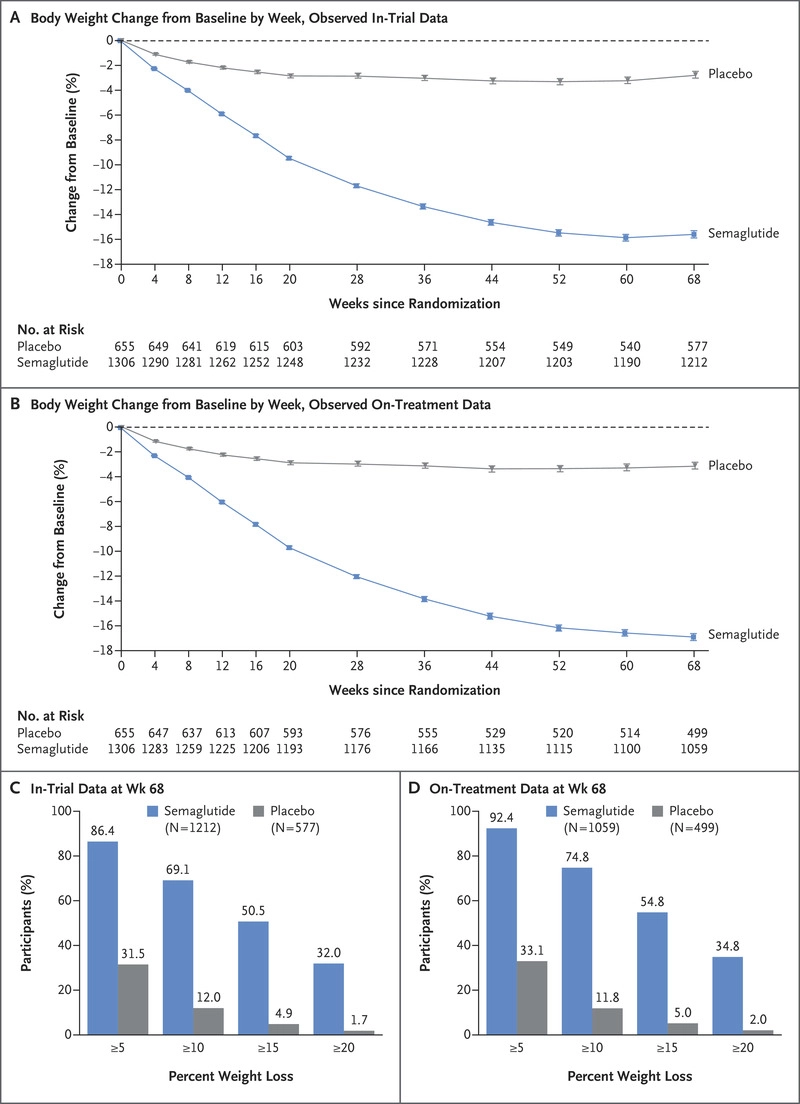
Take Advantage of our Exclusive Offer on Yunique Medical Products and Supplements!
Looking to enhance your well-being and unlock your full potential? Look no further! Yunique Medical is thrilled to present an incredible offer exclusively for you on our collection of cutting-edge advanced supplements. To claim this offer, simply click on the link below and explore our Yunique Medical Collection. Discover the power of innovation and wellness, and start your journey towards a healthier, more vibrant you today!
GET STARTEDOzempic has revolutionized diabetes care, enabling patients to not only control their blood sugar levels but also improve their overall health. Its real breakthrough, however, lies in its potential for weight loss.
Discover how Ozempic can be a game-changer in your weight management journey, learn if it’s the right fit for you, and understand the best practices for its safe and effective use.
RELATED: Everything You Need to Know FDA Approved New Weight Loss Drug Semaglutide
What Is Ozempic?
Understanding GLP-1
GLP-1 stands for Glucagon-Like Peptide-1, a hormone involved in blood sugar regulation.
It enhances the release of insulin (which lowers blood sugar) and reduces the secretion of glucagon (which raises blood sugar) when glucose levels are high. GLP-1 also slows gastric emptying, promoting a feeling of fullness, which can help with weight loss.
GLP-1 receptor agonists are medications that mimic or enhance GLP-1’s activity and are used to treat type 2 diabetes and, more recently, obesity. Other GLP-1 receptor agonists include:
- Dulaglutide
- Liraglutide
- Retatrutide
- Semaglutide injections
- Semaglutide tablets
- Tirzepatide
Of all studied GLP-1 receptor agonists, none perform as effectively as semaglutide.
Ozempic as a GLP-1 Receptor Agonist
Ozempic was approved by the Federal Drug Administration (FDA) as a diabetes management drug, but is known best for one of its side effects — significant weight loss.
Doctors can prescribe Ozempic off-label, meaning doctors can prescribe the injectable to patients as they see fit even if it’s not used as type 2 diabetes medication.
It is one of the only three FDA-approved semaglutide products, along with Wegovy® and Rybelsus®.

How Does Ozempic Work for Weight Loss?
Ozempic offers weight loss benefits by keeping its takers fuller for longer.
Ozempic Delays Gastric Emptying
GLP-1 slows down gastric emptying, the process by which food moves from the stomach to the intestine. By prolonging the time food stays in the stomach, it helps you feel fuller for longer. As a result, it reduces hunger and appetite, leading to lower food intake and aiding in weight loss.
Ozempic Reduces Hunger and Appetite
GLP-1 receptors in the hypothalamus, which controls food intake, respond to Ozempic by enhancing connections within the brain that regulate hunger. This reduces appetite and hunger in individuals with obesity, leading to decreased food consumption.
Prevents Overeating
GLP-1, acting as a neurotransmitter, signals the brain to feel full, thereby affecting how satisfied we feel after eating. It enhances this sense of fullness by activating certain neurons and suppressing appetite-stimulating neuropeptides.
Two possible side effects of overeating with Ozempic is nausea and vomiting. If you feel nauseous or vomit after a heavy meal, consider reducing your meal portions.
How to Use Ozempic for Weight Loss
For weight loss, Ozempic’s dosage should be gradually increased over a period of 16 to 20 weeks, starting at 0.25 mg weekly for the first month, then moving to 0.50 mg weekly for the second month, and reaching 1.00 mg weekly by the third month.
Inject on the same day each day, regardless of time and whether or not you’ve had a meal.
Ozempic is dispensed in pens for single-patient use, available in 0.25 mg or 0.50 mg and 1 mg doses. Confirm you’re using the correct pen as you increase your dose.
The FDA suggests not exceeding a maximum dosage of 1 mg weekly. Always monitor for side effects, such as nausea, and consult your doctor before making any changes to your dosage.
Keep in mind — Ozempic is approved for weight loss, but Wegovy is.
Wegovy, another Novo Nordisk semaglutide, is FDA-approved specifically for weight loss, showcasing promising results. In contrast to Ozempic’s maximum recommended dosage of 1 mg, Wegovy’s regimen increases gradually to a 2.4 mg dosage, aligning with the amounts utilized in most clinical trials. Wegovy is also created for individuals who need to lose weight but do not have diabetes.

How Effective Is Ozempic for Weight Loss?
A 68-week study involving nearly 2000 overweight or obese adults was conducted to prove Ozempic’s effectiveness.
The results showed that those using 2.4 mg of once-weekly semaglutide (Ozempic) lost 14.9 percent of their body weight on average compared to 2.4 percent in individuals on placebo.
The semaglutide group was also more likely than the placebo group to lose at least 5 percent of their body weight. Furthermore, compared to the placebo group, the semaglutide group experienced a more remarkable change in body weight from baseline to week 68 – 15.3 kg versus 2.6 kg.
Other Health Benefits of Ozempic
Ozempic, known for its role in blood sugar regulation and weight loss, also demonstrates significant semaglutide cardiovascular effects. It not only reduces waist circumference but importantly enhances cardiovascular health, marking a significant benefit for individuals with obesity and associated cardiovascular risks.
Side Effects to Expect With Ozempic
A 2021 study revealed the most prevalent side effects of Ozempic 2.4 mg:
- Nausea
- Diarrhea
- Vomiting
- Stomach discomfort
- Constipation
However, the side effects were usually mild to moderate, transient, and improved over time.
When considering Ozempic for weight management, it’s important to note that while it offers notable benefits in weight loss, discussions around “ozempic and sex drive” reveal that men, particularly those not diabetic but using semaglutide for weight reduction, might experience an increased risk of erectile dysfunction.
Ozempic Contraindications
According to the FDA, people with a family history of medullary thyroid cancer or patients with a rare disorder called multiple endocrine neoplasia type 2 syndrome should not use Ozempic. Furthermore, people allergic to semaglutide or other ingredients should also avoid using Ozempic.
Ozempic must not be injected into a muscle or vein because the body will absorb it too quickly, reducing the effective duration and causing pain at the injection site. In addition, injection sites must be rotated with each injection.

What to Avoid While on Ozempic
Other Semaglutide Medication
Lastly, it would be best if you didn’t use Ozempic with other semaglutide-containing weight-loss medications, such as prescription medications, nonprescription medications, or herbal products.
Ozempic for weight loss can add to traditional weight loss approaches such as diet and exercise. So if you’re looking to lose weight fast and sustainably, try Ozempic and see how much this new medication changes your weight loss journey.
Certain Oral Medications
Since Ozempic delays gastric emptying, it can affect the amount of oral medicine your body absorbs. Therefore, before starting Ozempic, ensure your doctor knows of any other drugs you’re taking.
Alcohol
Limit your alcohol intake while taking Ozempic since alcohol can affect your blood sugar if combined with Ozempic. Alcohol can also irritate your stomach, potentially exacerbating the medication’s gastrointestinal side effects.
Ozempic emerges as a compelling option among weight loss drugs for menopausal women, diabetes patients, and overweight individuals, offering more than just blood sugar regulation. Its efficacy extends to significant weight management, beneficial for those experiencing the challenging weight gain often associated with menopause. By enhancing feelings of fullness and reducing appetite, Ozempic supports sustainable weight loss, making it a valuable tool for improving overall health and well-being during menopause.
FAQ on Ozempic for Weight Loss
What does Ozempic do for weight loss?
Ozempic curbs the appetite and keeps its takers full for longer. Studies show that even a year after stopping its use, people maintain their new weight.
How much Ozempic is needed for weight loss?
Work your way up to 1 mg over months. Start with 0.25 mg injections once weekly for four weeks, increasing the dosage to 0.5 mg in the following month up until you hit 1 mg. Increase your use based on your body’s reaction.
How long does Ozempic take to work for weight loss?
In one study, patients lost as much as 6.7 kg in three months and 12.3 kg after six months. It only takes a few weeks to see noticeable improvements in weight reduction.
Does insurance cover Ozempic for weight loss?
It’s unlikely. Insurance companies may cover Ozempic if they’re used to treat diabetes, which is what they’re FDA-approved for. However, they may not cover your bills if they are used for weight loss.
Yunique Medical provides FUNCTIONAL MEDICINE for optimized health and performance. We offer customized, scientifically advanced treatments to create a new state of human thriving. Why be ordinary when you can be optimal?
HUMAN 2.0 begins here!
Contact us to schedule your FREE consultation at one of our three locations in Florida – Ocala, Fruitland Park (The Villages), and Daytona.


